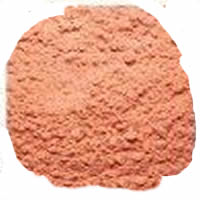Acerola Purchase & Information

Alternative Names
Acérola, Acerola Cherry, Barbados Cherry, Cerise des Antilles, Cerise de la Barbade, Puerto Rican Cherry, West Indian Cherry CAUTION: Please refer to separate listings for Cherokee Rosehip, Rose Hip, and Vitamin C
Scientific Name
Malpighia Glabra
Why Do People Use Acerola?
Oral preparations of Malpighia glabra (Acerola), like acerola powder, are used to treat or prevent scurvy, heart disease, colds, pressure sores, cancer, tooth decay, retinal hemorrhages, atherosclerosis, gum infections, hay fever, for depression complaints, preventing blood clots, for preventing blood clots, to enhance physical endurance and collagen disorders.
Is It Safe To Use?
Possibly Safe - Oral and appropriate (for short term) consumption of acerola is safe to use for individuals.
Avoid In Pregnancy and Lactation - Acerola powder should be avoided during pregnancy and breastfeeding because there is scarce and insufficient information available in this regard.
How Effective Is Acerola?
Malpighia glabra shown be effective in following conditions:
Scurvy - Oral consumption of acerola powder may protect from scurvy because of its vitamin C content.
To rate the effectiveness of acerola for its other uses, there is scarce and unreliable information available.
How Acerola Works?
The most effective part of Malpighia glabra is the fruit. There is 1000-2330 mg of vitamin C in each 100 grams of acerola. Vitamin C is an essential vitamin that is used for normal metabolic functions. It is important for tissue repair and collagen formation. Vitamin C is involved in folic acid conversion, tyrosine metabolism, synthesis of proteins and lipids, carbohydrate metabolism, resistance to infections, iron metabolism and cellular respiration. Vitamin C also plays its part as an antioxidant. It restores and regenerates oxidized vitamin E. Acerola fruit also consists of thiamine, vitamin A, niacin and riboflavin.
What Are The Side Effects /Adverse Reactions of Acerola?
High vitamin C content in acerola powder can result in abdominal cramps, nausea, insomnia, fatigue and sleepiness. Also, daily intake of acerola greater than one gram may leads to diarrhea.
How Acerola Interacts With Other Herbs and Supplements?
There is vitamin C in acerola. Therefore, concomitant consumption of acerola with vitamin C supplements may enhance the potential risks of adverse effects related with vitamin C.
How Acerola Interacts With Drugs?
Estrogens - Interaction rating between acerola powder and estrogens is minor, so be cautious about this combination. Concomitant consumption of estrogens with acerola may enhance the therapeutic effects and absorption of estrogen because of vitamin C content.
Fluphenazine (Prolixin) - Interaction rating between acerola and fluphenazine (prolixin) is moderate, so be careful about this mixture. Concomitant use with acerola may reduce the blood levels of prolixin because of vitamin C content in acerola.
Warfarin (Coumadin) - Interaction rating between acerola and warfarin (coumadin) is moderate, so be careful about this mixture. Consumption of acerola can lessen the anticoagulant effects of warfarin because to its vitamin C content.
How Acerola Interacts With Foods?
Iron - Usage of iron along with Malpighia glabra may enhance the GI absorption of iron from foods (ferric).
How Acerola Interacts With Lab Tests?
Stool Occult Blood Tests - Because of its vitamin C content, acerola can result in false-negative results if it is orally taken within 48 to 72 hours before amine-dependent tests.
Urine Glucose Tests - Amount of vitamin C content more than 500 mg can give a false-decreases with glucose oxidase tests (e.g., Clinistix) result. Vitamin C in acerola may also result in false increases with cupric sulfate tests (e.g., Clinitest).
How Acerola Interacts With Diseases and Conditions?
Gout - Vitamin C in acerola powder may enhance the uric acid levels.
Kidney Stones (Nephrolithiasis).
Vitamin C in acerola in excessive dosage may result in precipitation of cystine, urate or oxalate stones.
What Should Be the Dose/Administration of Acerola?
There is no typical dosage of acerola.
Comments
None.
General Certificate of Analysis (COA)
Specification sheet links below are a standard copy of the COA less the batch or lot number and manufactures dates. Specification sheet can be dated and should only be considered as a general information. Please contact and request an up to date COA if needed for specific updated information before placing order by filling out the contact form with product name and SKU number. If ordering quantities of twenty five kilos or more contact for availability.
